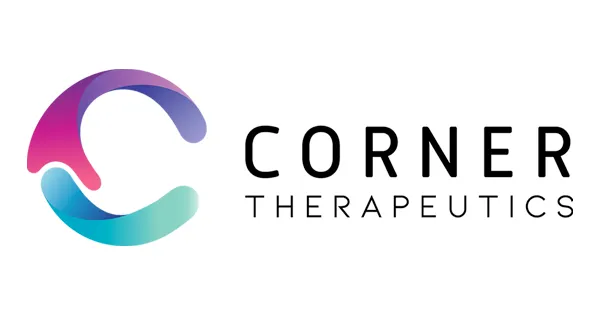
Corner Therapeutics Research Opens Door to Universal Flu Vaccine and Expands Promise for Cancer Immunotherapy
Corner Therapeutics, a biotechnology company specializing in in vivo T cell modulation and immunotherapy, has announced groundbreaking findings that could reshape the future of vaccination and cancer treatment. The company’s newly published research in mBio, a leading peer-reviewed microbiology journal, demonstrates that its proprietary hyperactivator technology significantly outperforms standard influenza vaccine adjuvants. The findings represent a potential paradigm shift in immunology, laying the groundwork for a universal influenza vaccine and serving as proof-of-concept for Corner’s broader immunotherapy ambitions, particularly in oncology.
The Persistent Challenge of Influenza Vaccination
Influenza remains one of the most challenging viral diseases to prevent on a global scale. Each year, the flu virus undergoes antigenic drift and shift, requiring scientists to predict which strains will dominate the upcoming flu season. Current influenza vaccines are typically updated annually to match circulating strains, yet their effectiveness varies widely — from as low as 10% in mismatched years to around 60% in optimal years.
Despite decades of vaccination campaigns, seasonal influenza continues to cause 3 to 5 million severe cases and hundreds of thousands of deaths worldwide every year, according to the World Health Organization (WHO). The unpredictable nature of influenza evolution, combined with the need for yearly immunizations, highlights the urgent demand for a universal flu vaccine that can protect against multiple strains and confer long-lasting immunity.
Traditional influenza vaccines rely on adjuvants such as aluminum salts (commonly known as Alum) to enhance immune responses. While effective at amplifying antibody production, these adjuvants are limited in their ability to generate robust and durable T cell immunity, a critical component for broad and long-term protection. This limitation has left researchers searching for new strategies that can go beyond antibodies and elicit memory T cell responses capable of recognizing and neutralizing diverse viral variants.
Corner’s Breakthrough: Hyperactivators and In Vivo T Cell Engineering
Corner Therapeutics’ new study introduces hyperactivators, a novel class of drugs designed to engage dendritic cells, the body’s natural “T cell engineers.” Dendritic cells play a pivotal role in orchestrating immune responses by capturing antigens, processing them, and presenting them to T cells. By targeting these immune gatekeepers directly, Corner’s technology aims to generate powerful and durable T cell immunity in vivo.
In the published study, Corner scientists tested hyperactivators in combination with Afluria, a widely used quadrivalent influenza vaccine that targets four circulating flu strains. Remarkably, the addition of hyperactivators converted Afluria into a universal formulation capable of inducing immunity across all strains present in the vaccine. This breakthrough was observed in both mice and non-human primates, demonstrating translational relevance for human applications.
Importantly, hyperactivators were shown to achieve this effect while maintaining excellent safety margins. Unlike traditional adjuvants such as Alum, which can damage dendritic cells in the process of stimulating immune responses, hyperactivators preserve dendritic cell viability and instead provide instructive signals that promote long-term immune memory. This distinction could prove critical in developing vaccines that not only provide immediate protection but also establish durable immunity that lasts for years — potentially even a lifetime.
Toward a Universal Flu Vaccine
The implications of these findings are profound. A universal influenza vaccine has long been considered a “holy grail” of vaccinology, promising to eliminate the need for yearly reformulation and distribution of flu shots. By demonstrating broad strain coverage and durable immune memory in preclinical models, Corner’s hyperactivator technology offers a credible path toward achieving this vision.
Dr. Jonathan Kagan, Distinguished Scientist at Corner Therapeutics, emphasized the transformative potential of the discovery:

“Our hyperactivator technology addresses a fundamental challenge for vaccines: how to protect people from broad strains of a virus while providing a durable, lifelong immune response. This research validates a central dogma in immunology — that dendritic cells are the best conduit to robust T cell responses and immunity. This work not only moves us one step closer to a universal influenza vaccine that could eliminate the need for annual shots, but also provides proof-of-concept for our approach to cancer immunotherapies, where T cell activities are key to tumor eradication.”
If successful in human clinical trials, a universal flu vaccine could revolutionize global public health. It would reduce the annual burden of influenza-related hospitalizations and deaths, streamline vaccine manufacturing, and improve preparedness for future influenza pandemics.
Implications Beyond Infectious Disease: Oncology Applications
While influenza provides an immediate and high-impact application for Corner’s technology, the broader implications for cancer immunotherapy may be even more significant. Many of the most promising advances in oncology — including checkpoint inhibitors, CAR-T therapies, and therapeutic cancer vaccines — depend on the body’s ability to generate potent and sustained T cell responses against tumor antigens.
However, a persistent challenge in cancer immunotherapy has been the incomplete activation and exhaustion of T cells within the tumor microenvironment. By directly instructing dendritic cells to generate robust, tumor-specific T cell immunity, Corner’s hyperactivators may overcome these limitations and enhance the effectiveness of both standalone and combination cancer therapies.
The study thus provides crucial validation for Corner’s DCITE platform (Dendritic Cell Initiated T cell Engineering), which leverages lipid nanoparticle (LNP) formulations to deliver mRNA encoding tumor-specific antigens directly to dendritic cells. Once activated, these dendritic cells can instruct CD8+ T cells — the cytotoxic “killer” cells of the immune system — to recognize and destroy cancer cells. The convergence of hyperactivator technology with DCITE could represent a new frontier in cancer vaccine development.
Redefining the Role of Dendritic Cells
Dendritic cells are often referred to as the “sentinels” of the immune system, but Corner’s research reframes them as programmable engineers of immunity. By shifting the paradigm from passive adjuvant stimulation to active dendritic cell instruction, Corner is pioneering a more precise, durable, and versatile approach to immunotherapy.
Traditional adjuvants like Alum work by inducing local inflammation and promoting antibody responses. However, they lack the ability to fine-tune the quality of the immune response, particularly when it comes to generating T cell memory. Hyperactivators, by contrast, send targeted activation signals to dendritic cells, resulting in a more balanced and comprehensive immune profile — one that integrates both antibody and T cell protection.
This approach holds promise not only for influenza and cancer but also for a wide range of infectious diseases, autoimmune disorders, and emerging viral threats where T cell responses are essential for long-term immunity.
Safety and Efficacy in Preclinical Models
A key differentiator of Corner’s technology is its favorable safety profile in preclinical studies. In both mice and non-human primates, hyperactivators enhanced cross-strain antibody responses and generated robust T cell memory without causing the toxic effects often associated with aggressive immune stimulation.
The preservation of dendritic cell function is particularly noteworthy. Many conventional adjuvants trigger short-term immune activation at the expense of long-term cell viability, limiting their ability to support durable immunity. Hyperactivators, by contrast, maintain dendritic cell health, enabling them to continue presenting antigens and sustaining immune memory over time.
These findings provide confidence as Corner prepares for the next stage of development: human clinical trials. The company has stated its intention to initiate first-in-human studies of hyperactivator technology by the end of 2027, a milestone that could mark the beginning of a new era in both vaccinology and oncology.
Corner’s Broader Vision: Building an Immunotherapy Platform
Beyond hyperactivators, Corner’s research portfolio reflects a bold vision to redefine how the immune system is harnessed for health. The company’s DCITE platform, which leverages lipid nanoparticle delivery of antigen-encoding mRNA to dendritic cells, represents a complementary strategy to its hyperactivator program. Together, these technologies provide a dual toolkit: one that strengthens immune responses in prophylactic settings (like vaccines) and another that engineers precise therapeutic T cell responses for cancer and infectious diseases.
By investing in in vivo immuno-engineering, Corner is positioning itself at the intersection of two of the most dynamic fields in medicine: next-generation vaccines and cancer immunotherapy. The success of mRNA vaccines against COVID-19 has already demonstrated the potential of genetic instructions to train the immune system. Corner’s work extends this concept, adding the critical layer of dendritic cell programming to achieve more sophisticated and durable outcomes.
A Transformative Future for Vaccines and Cancer Therapies
If Corner Therapeutics succeeds in bringing its hyperactivator technology to patients, the impact could be transformative:
- Universal Influenza Protection: A single vaccine capable of protecting against diverse flu strains, reducing seasonal epidemics and improving pandemic preparedness.
- Durable Immune Memory: Lifelong protection from vaccination, reducing the burden of repeated immunizations.
- Enhanced Cancer Immunotherapies: More effective vaccines and combination strategies that generate sustained T cell activity against tumors.
- Broader Applications: Extension of hyperactivator and DCITE platforms to other infectious diseases, including HIV, hepatitis, and emerging viral pathogens.
As the company advances toward clinical trials, it faces challenges common to pioneering biotech ventures: scaling manufacturing, navigating regulatory pathways, and demonstrating safety and efficacy in diverse patient populations. However, the scientific foundation laid by its mBio publication represents a significant step forward.
The research published by Corner Therapeutics marks a major milestone in the pursuit of universal flu vaccines and next-generation cancer immunotherapies. By harnessing the power of dendritic cells through hyperactivator technology, the company has demonstrated a new way to achieve broad, durable, and safe T cell immunity in vivo.
This innovation not only brings humanity closer to eliminating the annual flu shot but also signals new possibilities in oncology, where durable T cell responses remain a critical unmet need. With clinical trials anticipated by 2027, Corner Therapeutics is poised to shape the future of immunology, bridging the worlds of infectious disease prevention and cancer treatment in ways that were once thought impossible.





